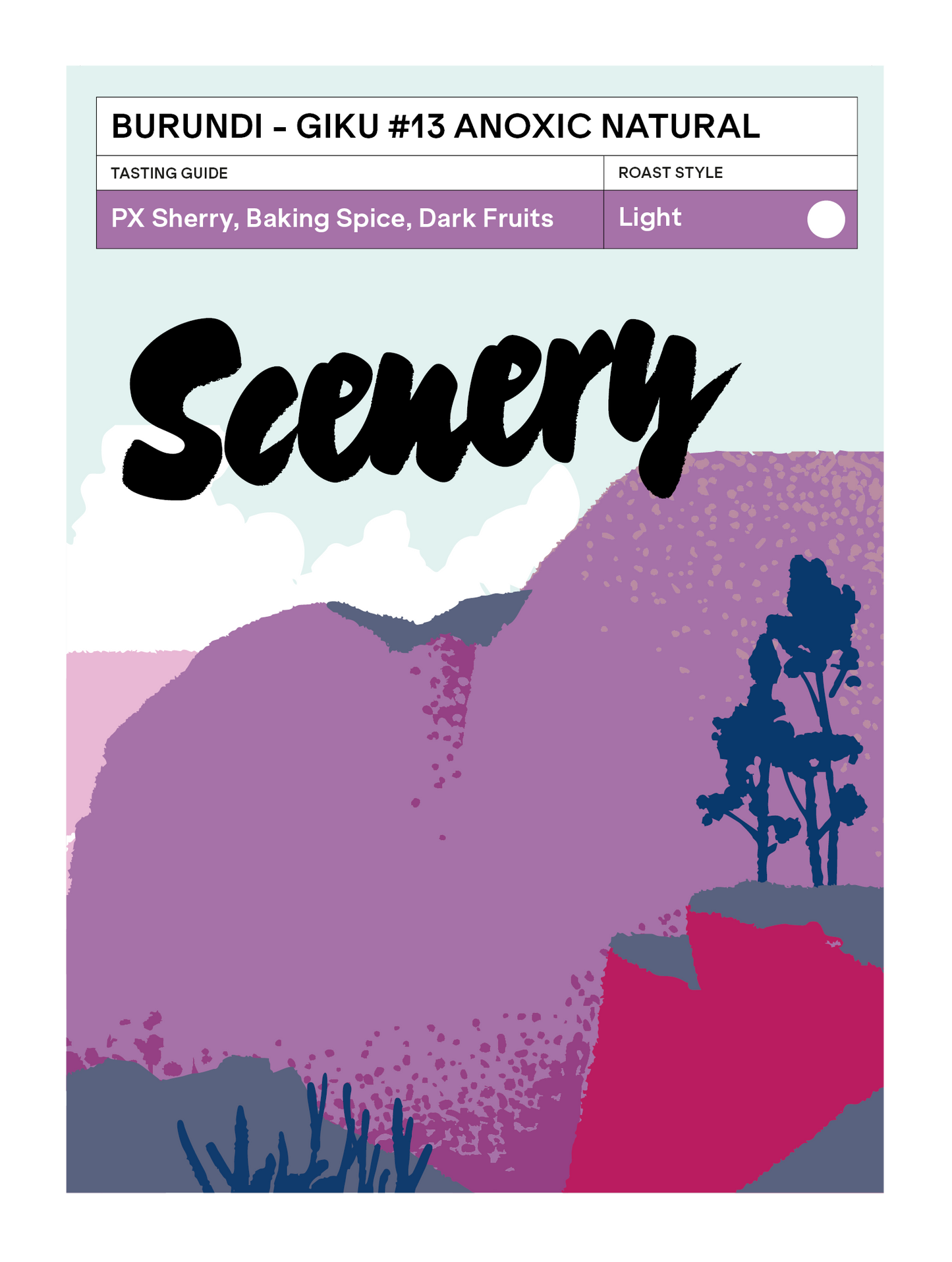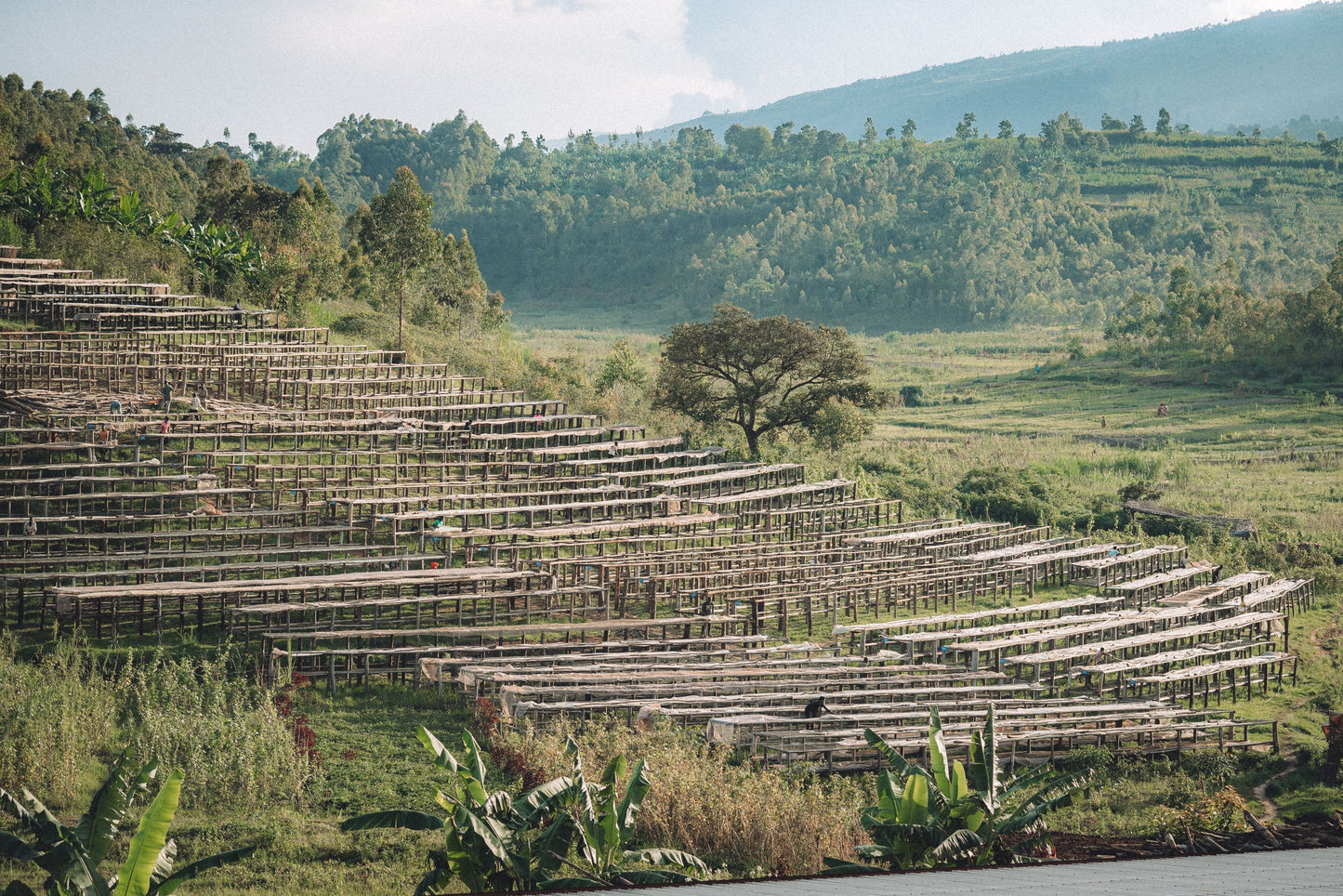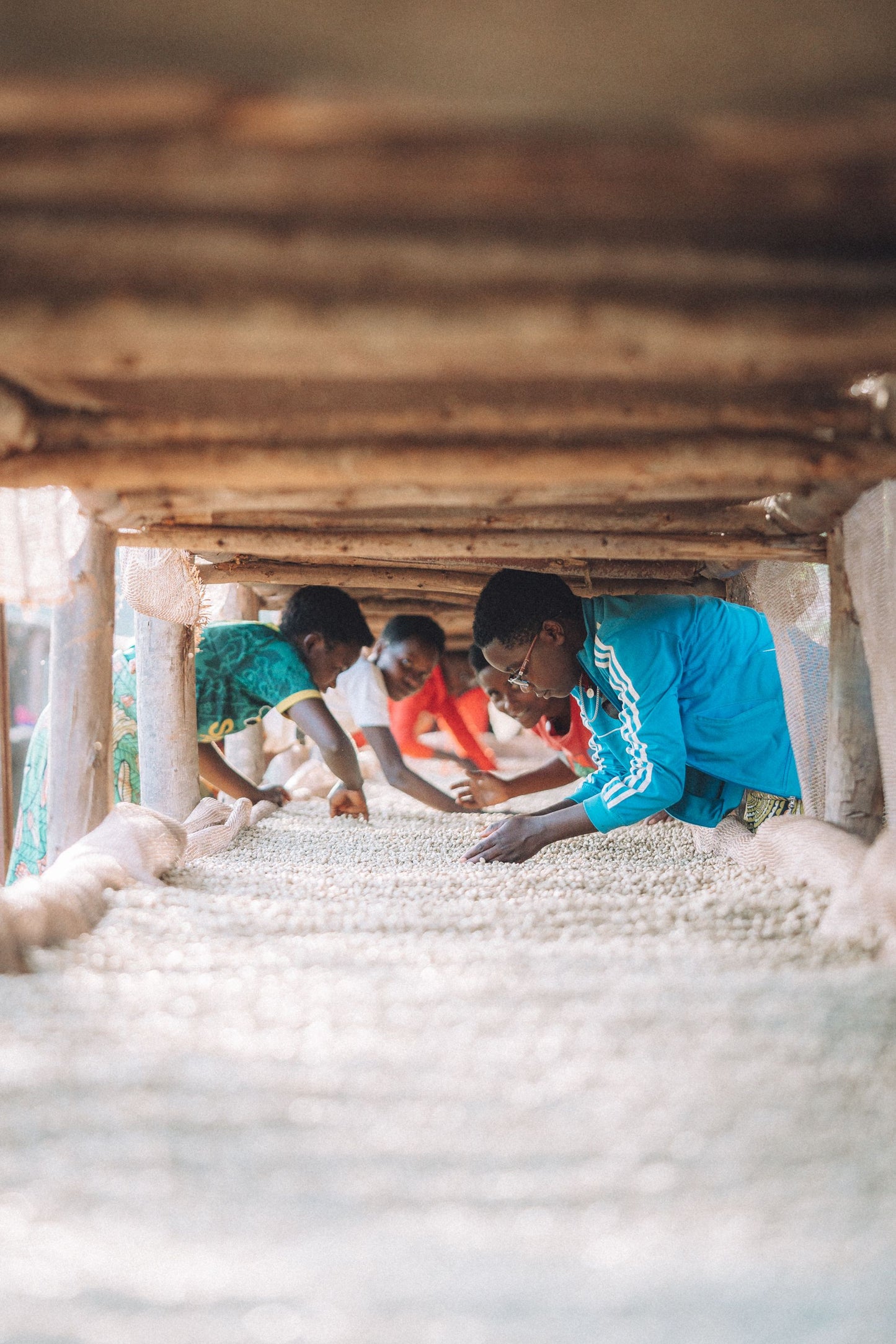




Brew Guide:
Best brewed with: Filter
Lightest Roast Influence: Coffees showing this level of heavy process character we tend to really pull back on the roasting; shooting for clarity and high fruity acids.
We like 58-60g/L and 96-98°C water for brewing, drop temps 2-3°C if well rested
18g, 48g, 26-30s for espresso.
Best rested: 3-4 weeks from roast.
We’re tasting:
Aromas of spiced rum, raisin and date. In the cup - sweet Pedro Ximénez sherry, milk chocolate, and buttery, warm spices - like fresh baked cinnamon bun. Process-led and unashamedly funky, with all of the purple fruits.
Traceability:
Country of Origin: |
Burundi |
Region: |
Gikungere, Butaganzwa, Kayanza Province |
Farm: |
150 smallholder farmers selling cherry to Ninga CWS |
Station: |
Ninga CWS, Long Miles Coffee Project |
Variety: |
Red Bourbon |
Elevation: |
1600-1750 MASL |
Process: |
Anoxic Natural: Ripe cherries picked and delivered on foot/bicycle to Ninga CWS. Cherries floated and skimmed to remove underripes, before being placed in shaded sealed tanks for a 48-72 hr anoxic in-cherry ferment. Dried on raised beds over 3-4 weeks |
Import Partner: |
Osito |
Harvest: |
Crop 24/25, Arrived UK Jan 2025 Third harvest purchasing coffee from the Giku hill smallholders. |
The Story:
There were some interesting twists and turns to the process of exporting coffee from Burundi this year. A landlocked country in East Africa, export logistics and bureaucracy are tricky at the best of times - but this year had some doozys. The exact intrigues that went down in order to get coffee out this year is a story that's unfortunately not ours to tell (especially second-hand - getting the facts wrong could cause legal and safety implications for those working in country).
*** UPDATES ***
The story is out and oh boy is it a doozy - listen to the excellent 'Buying Season' podcast episode on "Project Brown"
****
After wondering if we'd see any coffees from Burundi this year, tasting this coffee again on arrival was a reminder of why we keep coming back.
The 2024 harvest marked a return to form after last year's low yields. Government-fixed cherry prices increased to 1,380 Burundian francs per kilo - about 37p at current rates. For Burundi's smallholder farmers, who often tend just 50-250 trees on tiny plots, these fixed prices represent their only immediate income from the harvest. But with global coffee prices hitting record highs in 2024, the gap between local cherry payments and international market value grew stark.
Farmers will pick and deliver cherry to either collection points or to the washing stations themselves, depending on what is closer, although “closer” in this context can often still mean a matter of many kilometres - no small feat when a sack of fresh cherries could weigh 30-60kg and upwards. A station or collecting agent can pay no less than the Government fixed price - but also no more - for the initial cherry collection, which is paid to the farmer on the spot at the moment of delivery.
In order for the higher price commanded by speciality to return to the producers, a second “quality premium” will be paid - typically at the end of the harvest, some weeks or months later, as the coffee is being shipped and FOB invoices settled (payments made when coffee is loaded onto a container). This requires a lot of traceability, record keeping and sound-partnership to ensure that the value is fully returned for the higher premiums these lots command. The ability to significantly return value at origin is why we chose to work with exporters like Long Miles (via Osito) in Burundi.
It's profoundly important that this happens - we're in a world with record high commercial prices for coffee (as well reported in the news) and accessing those prices involves a degree of resource, finance & information that it would be fair to say the average Burundian smallholder would not have access to. The importance of these direct relationships becomes even more critical - ensuring that the premium we pay for quality actually makes it back to the producers who created it, rather than being captured upstream.
We've doubled down on Giku this year - both in lots selected and overall volume purchased. The consistently stellar quality we've had the pleasure of purchasing from these smallholders & the Ninga CWS shows why Burundi has become such an anticipated part of our late winter/early spring offer.
- Choosing a selection results in a full page refresh.
- Opens in a new window.





